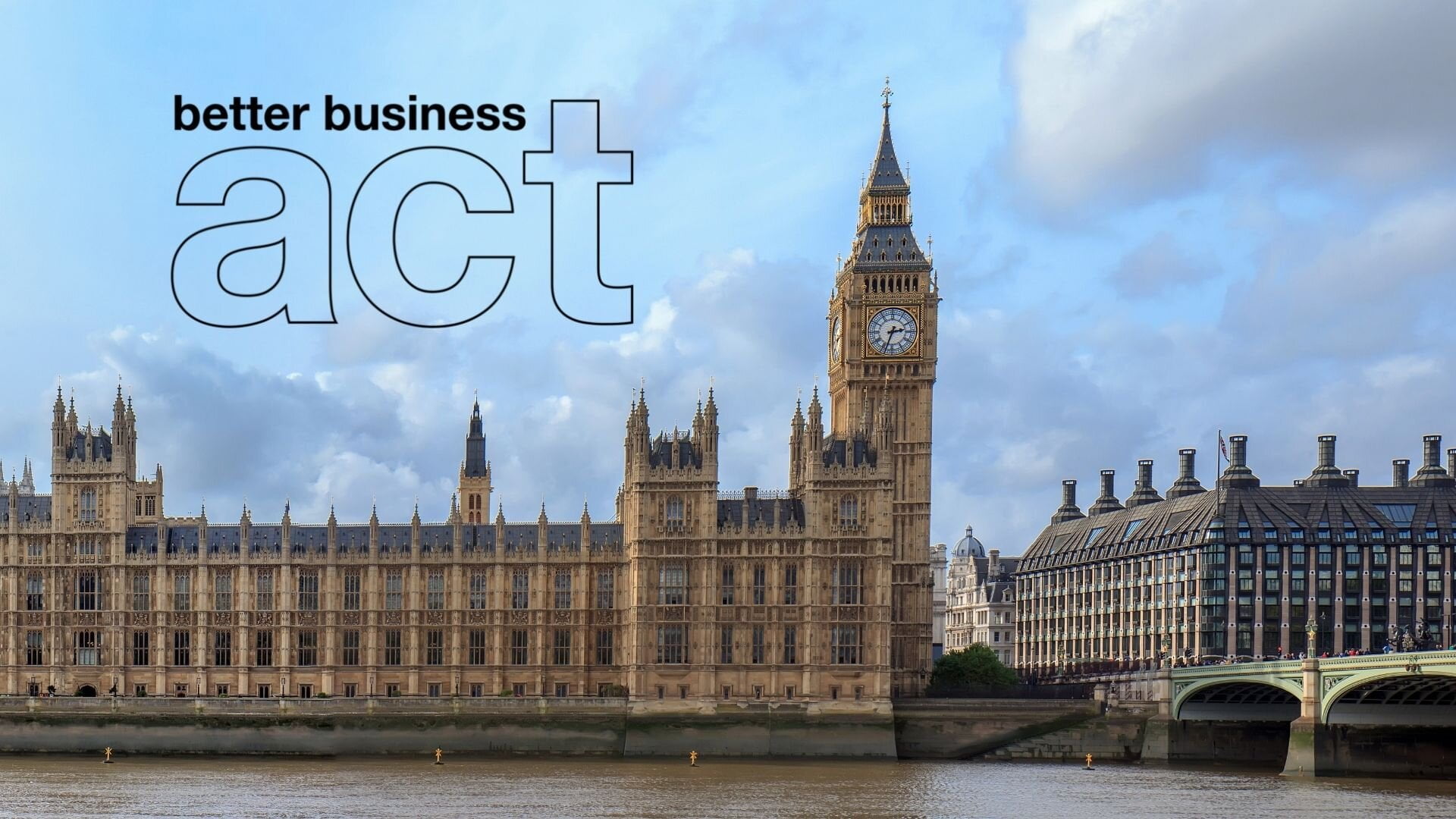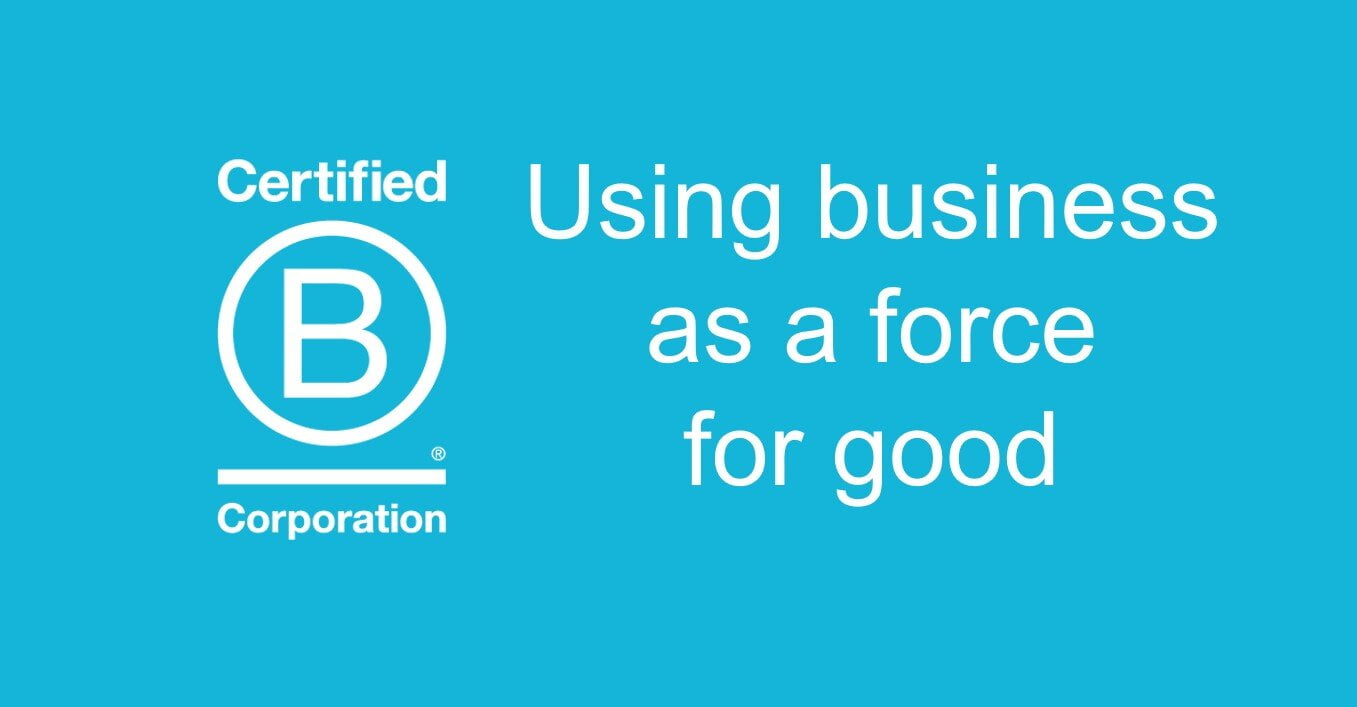The laws that govern how businesses are run in the UK are outdated and out of step with the biggest challenges and priorities of the world today.
That’s the opinion of the UK business leaders who are driving the Better Business Act (BBA) campaign. This coalition is calling for the government to change business legislation so that it is no longer mandatory to put shareholder interests above all other stakeholders, such as people and the planet.
Why? Because the way we’ve been running businesses for the last 250 years has brought the planet to the brink of climate catastrophe and driven social inequality. While short-term financial profit has been the only measure of so-called ‘success’, the price we’ve paid is collapse of the ecosystems upon which life on Earth depends.
Which is why the BBA coalition is asking government to reset the foundations of how businesses operate. The objective being to change UK law to make sure every single company in the UK, whether big or small, aligns the interests of their shareholders with those of wider society and the environment.
Specifically, the objective is to amend Section 172 of the Companies Act in line with these principles.
Founding members of the 650+ strong BBA coalition include Waitrose, John Lewis, Innocent Drinks, Iceland, Bulb, Brewdog, Graze, Danone and Havas London.
THE PROBLEM WITH THE COMPANIES ACT
Today, the UK Companies Act is at best vague and slightly confusing. At worst, it’s a hiding place for those that want to justify why they’re profit maximising despite the costs to wider society.
How? Because at present, the Act makes it a legal requirement to put the profits of a shareholder above the health of the planet and society.
If a company can only make a profit for its shareholders by continuing to degrade the environment then the law can be read as compelling the directors to discount the environmental impact in favour of pursuing the success of the company.
Currently, subsection 172(1) of the Companies Act 2006 allows directors to consider other stakeholders when making decisions, but this can only be in the course of pursuing the success of the company for the benefit of the shareholders; this is the default position of “shareholder primacy” for all companies.
The BBA would change the default position for all companies so that directors would be empowered to advance the interests of their shareholders alongside those of wider society and the environment. In situations where a director has to choose between the company’s intention to create positive social or environmental impacts and the interests of shareholders, the directors would no longer be compelled to default to prioritising shareholders. To see exactly how the proposed new legislation would read, click here
FOUR PRINCIPLES
By amending Section 172 of the Act, businesses can use existing legal principles to empower directors to advance the interests of all stakeholders.
For many directors, this change in law will not materially affect their behaviours or the actions of their companies, but by becoming law it will no longer be a choice to align the long-term interests of people, planet and profit. The objective is to see the following four principles reflected in an amended Section 172 of the Companies Act:
1. Aligned Interests
The interests of shareholders are now advanced alongside those of wider society and the environment. This establishes a new principle of fiduciary duty within section 172 of the Companies Act.
2. Empowering directors
This change must empower directors to exercise their judgement in weighing up and advancing the interests of all stakeholders.
3. Default change
This change must apply to all businesses by default. It must no longer be optional to benefit wider stakeholders beyond shareholders.
4. Reflected in reporting
Following this change, businesses must report on how they balance people, planet and profit in a strategic report or impact report, where one is currently required.
BUSINESS AS A FORCE FOR GOOD
Business is often cast as the villain of the piece in the climate emergency but in truth it’s been acting just like the rest of us, some good, some bad, some pioneering, others lagging and a minority actively ignoring the reality that faces us and wilfully chasing short-term profit at the price of both the planet and its people.
Clearly though, business has a crucial role to play as we seek to address the environmental crisis and the crisis of social inequality.
As the BBA coalition have made clear, the change to section 172 is not a panacea. On its own, it cannot transform the approach of business but it can remove the excuse of those businesses that say they cannot act in the interests of people and the planet. And it can set a culture of behaviour that other businesses will increasingly be expected to follow.
For too long, shareholder revenue has been the absolute focus and priority of business and capitalism. This has been at the cost of workers, society, and the planet. The evidence is building that the right business models are ones where we align the needs of all stakeholders, including shareholders.
Successful businesses of the future will not be competing to be the best in the world but to be the best for the world.
Business is going in this direction anyway but not fast enough; we need to accelerate the change and the Companies Act is the foundation. Get the foundation right and we can build from there.
The only question then is, are you in?
Click here to join the coalition
BECOMING A SUSTAINABLE BUSINESS
The writing is on the wall. ‘Business as usual’ is over. Businesses can choose to get on board as soon as possible and manage a smoother transition while leveraging the opportunities on offer. Or they can risk business whiplash when the world slams the brakes on fossil fuels.
Don’t know where to start? The tried and tested approach we recommend here at Business On Purpose is undertaking a B Corp assessment, which is the gold standard of environmental and social certification.
The B Impact Assessment (BIA) is a free and confidential tool that allows companies to set social and environmental goals. As well, the feedback gained from this assessment can be used to chart out improvements that help you build a better, stronger, fitter business.
If you’re interested in exploring B Corp assessment or certification, we offer several service options that guide you through this process. To find out more, go to https://businessonpurpose.uk/bcorp or drop an email to: andy@businessonpurpose.uk
LINKS & REFERENCES
Read the proposed legislative changes: <https://betterbusinessact.org/wp-content/uploads/2021/04/The-Better-Business-Act-2021.pdf>
Join the BBA coalition: https://betterbusinessact.org/act-now
The Better Business Act Parliamentary Reception took place on 14 April 2021. To find out more about the Act and the politicians across Westminster who are backing the campaign to change the law, click here to watch a recording of the event.







